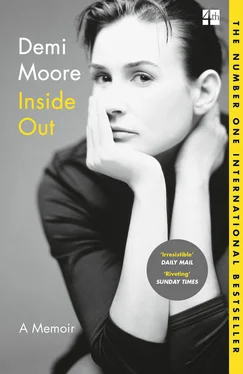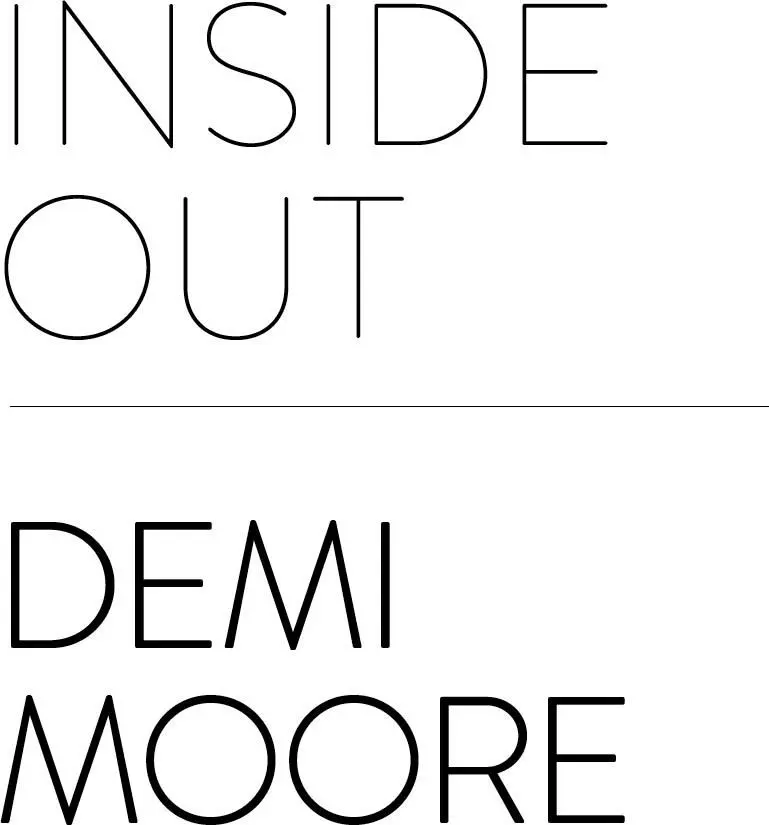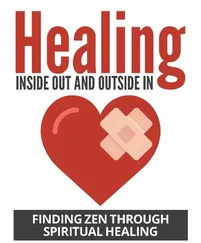
4th Estate
An imprint of HarperCollins Publishers
1 London Bridge Street
London SE1 9GF
www.4thEstate.co.uk
This eBook first published in Great Britain by 4th Estate in 2019
Copyright © Demi Moore 2019
Cover design by Robin Bilardello
Front cover photograph © Matthew Rolston/Getty Images
Back jacket photograph © courtesy of the author
Demi Moore asserts the moral right to be identified as the author of this work
A catalogue record for this book is available from the British Library
All rights reserved under International and Pan-American Copyright Conventions. By payment of the required fees, you have been granted the non-exclusive, non-transferable right to access and read the text of this e-book on-screen. No part of this text may be reproduced, transmitted, down-loaded, decompiled, reverse engineered, or stored in or introduced into any information storage and retrieval system, in any form or by any means, whether electronic or mechanical, now known or hereinafter invented, without the express written permission of HarperCollins
Source ISBN: 9780007466092
Ebook Edition © September 2019 ISBN: 9780007468843
Version: 2020-11-06
For my mother, my daughters, and my daughters’ daughters
THE GUEST HOUSE
This being human is a guest house.
Every morning a new arrival.
A joy, a depression, a meanness,
some momentary awareness comes
as an unexpected visitor.
Welcome and entertain them all!
Even if they are a crowd of sorrows,
who violently sweep your house
empty of its furniture,
still, treat each guest honorably.
He may be clearing you out
for some new delight.
The dark thought, the shame, the malice.
meet them at the door laughing and invite them in.
Be grateful for whatever comes.
because each has been sent
as a guide from beyond.
—Rumi (translated by Coleman Barks)
Cover
Title Page
Copyright
Dedication
Epigraph
Prologue
Part I: Survival
Chapter 1
Chapter 2
Chapter 3
Chapter 4
Chapter 5
Chapter 6
Chapter 7
Part II: Success
Chapter 8
Chapter 9
Chapter 10
Chapter 11
Chapter 12
Chapter 13
Chapter 14
Chapter 15
Part III: Surrender
Chapter 16
Chapter 17
Chapter 18
Chapter 19
Chapter 20
Chapter 21
Chapter 22
Epilogue
Acknowledgments
Photo Section
About the Author
About the Publisher
The same question kept going through my head: How did I get here?
In the empty house where I’d been married, where we’d added on because I had more kids than bedrooms, I was now completely alone. I was almost fifty. The husband who I’d thought was the love of my life had cheated on me and then decided he didn’t want to work on our marriage. My children weren’t speaking to me: no happy birthday calls, no Merry Christmas texts. Nothing. Their father—a friend I’d counted on for years—was gone from my life. The career I’d scrambled to create since I moved out of my mother’s apartment when I was sixteen years old was stalled, or maybe it was over for good. Everything I was attached to—even my health—had abandoned me. I was getting blinding headaches and losing weight scarily fast. I looked like I felt: destroyed.
Is this life? I wondered. Because if this is it, I’m done. I don’t know what I’m doing here.
I was going through the motions, doing whatever seemed like it needed doing—feeding the dogs, answering the phone. A friend had a birthday and some people came over. I did what other people were doing: sucked in a hit of nitrous oxide, and, when the joint reached me on the sunken couch in my living room, I took a puff of synthetic pot (it was called Diablo, fittingly).
The next thing I remember, everything went blurry and I could see myself from above. I was floating out of my body into swirling colors, and it seemed like maybe this was my chance: I could leave the pain and shame of my life behind. The headaches and the heartbreak and the sense of failure—as a mother, a wife, and a woman—would just evaporate.
But there was still that question: How did I get here? After all the luck and success I’d had as an adult. After all the running I had to do to survive my childhood. After a marriage that started out feeling like magic, to the first person I ever really tried to show my whole self to. After I’d finally made peace with my body and stopped starving and torturing it—waging war on myself with food as the weapon. And, most importantly, after I’d raised three daughters and done everything I could think of to make myself the mother I never had. Did all of that struggle really add up to nothing?
Suddenly I was back in my body, convulsing on the floor, and I heard someone scream, “Call 911!”
I yelled “No!” because I knew what would come next: the ambulance, then the paparazzi, then TMZ announcing, “Demi Moore, rushed to the hospital on drugs!” And all of that happened, just like I knew it would. But something else happened that I didn’t expect. I decided to sit still—after a life of running—and face myself. I’d done a lot in fifty years, but I don’t know that I’d really experienced a lot, because I spent most of that time not quite there, afraid to be in myself, convinced I didn’t deserve the good and frantically trying to fix the bad.
How did I get here? This is my story.
Part I
It may sound strange, but I remember the time I spent in the hospital in Merced, California, when I was five years old as almost magical. Sitting up in bed in my soft pink fleecy nightgown waiting for my daily round of visitors—doctors, nurses, my parents—I felt completely comfortable. I’d already been there for two weeks and was determined to be the best patient they’d ever seen. There in the clean, bright room, everything felt like it was under control: there were dependable routines at the hospital enforced by real grown-ups. (In those days, there was a sense of awe around the doctors and nurses: everyone revered them, and to be in their midst felt like a privilege.) Everything made sense: I liked that there was a way I could behave that would yield predictable responses.
I had been diagnosed with kidney nephrosis, a life-threatening condition about which very little was known—it had really been studied only in boys, to the extent that it was studied at all. Basically, it’s a retentive disease in which your filtering system isn’t doing its job. I remember being terrified when my genitals swelled up and I showed my mom and saw her reaction: pure panic. She got me in the car and rushed me to the hospital, where I ended up staying for three months.
My aunt taught fourth grade, and she’d had her entire class make get-well cards, on construction paper with crayons and markers, which my parents delivered that afternoon. I was excited by the attention—from older kids, kids I didn’t know. But when I looked up from the brightly colored cards, I saw my parents’ faces. For the first time, I could feel their fear that I might not make it.
Читать дальше













